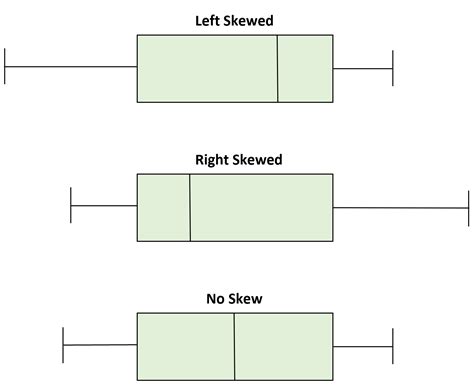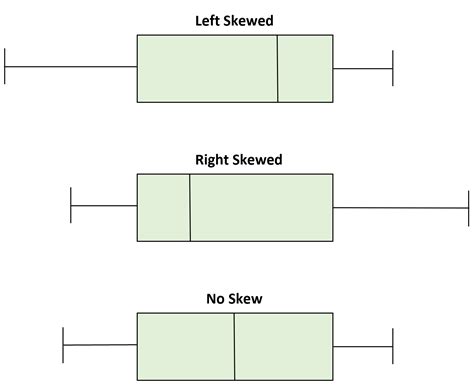can you use a box plot for non normal distribution Data do not have to be normally distributed before a control chart can be used – including the individuals control chart. But, you better not ignore the distribution in deciding how to interpret . VFI Fabrication LLC is located at 300 Thomas Ave Suite 101 in Williamstown, New Jersey 08094. VFI Fabrication LLC can be contacted via phone at 856-629-8786 for pricing, hours and directions. Contact Info
0 · skewed to the right boxplot
1 · positively skewed distribution box plot
2 · positively skewed box plots
3 · positive skew vs negative boxplot
4 · how to interpret boxplot results
5 · boxplot skewed to the left
6 · box and whiskers chart explained
7 · 25th percentile on a boxplot
No, a metal roof won’t make your house hotter. When metal is under direct light, it will heat up. But that’s only the surface temperature. What we want to focus on is whether it retains heat. Most metal roof colors have an SRI .
If you'd like to use a boxplot for other reasons, note that you could compute the expected value from the distribution (ie, fitting, like you mentioned) and then add a marker to the boxplot where peak of the distribution is.Using violin plots, for instance, give you a detailed view of the kernel density of your distribution, and thus highlight "better" the underlying distributions compared to boxplots. In R, you can use .
Data do not have to be normally distributed before a control chart can be used – including the individuals control chart. But, you better not ignore the distribution in deciding how to interpret .

In the last section, we went over a boxplot on a normal distribution, but as you obviously won’t always have an underlying normal distribution, let’s go over how to utilize a .Testing if a data sample is normally distribution can be done in a lot of ways. One simple method is with a QQ plot. To do this, use 'qqplot(X)' where X is your data sample. If the result is approximately a straight line, the sample is normal. If .
We know our data should fit a non-normal (positively skewed) distribution. It should resemble a ski-slope like the picture below: In this post, I will cover five simple steps to understand the capability of a non-normal process to meet .A box plot (aka box and whisker plot) uses boxes and lines to depict the distributions of one or more groups of numeric data. Box limits indicate the range of the central 50% of the data, with .
skewed to the right boxplot
Create a box plot for the data from each variable and decide, based on that box plot, whether the distribution of values is normal, skewed to the left, or skewed to the right, and estimate the .

In a boxplot, outliers are plotted individually as dots. A uniform distribution has no 'tails', and outliers are rare. A normal distribution has long thin tails, and and a boxplot of a . If you'd like to use a boxplot for other reasons, note that you could compute the expected value from the distribution (ie, fitting, like you mentioned) and then add a marker to the boxplot where peak of the distribution is.
Using violin plots, for instance, give you a detailed view of the kernel density of your distribution, and thus highlight "better" the underlying distributions compared to boxplots. In R, you can use the ggplot2 library, and use a geom_violin() layer.
A normal probability plot is an excellent way to compare an empirical distribution to a normal distribution. Its merits are that it clearly displays the nature of any deviations from normality: ideally, the points lie along the diagonal; vertical deviations .
positively skewed distribution box plot
Use a box plot to compare distributions when you have a categorical grouping variable and a continuous outcome variable. The levels of the categorical variables form the groups in your data, and the researchers measure the continuous variable.
The raw data can be shown using q-q-plots, as you do, or using the ECDF, as Frank Harrell suggests. However, I don't think a rug plot will be very enlightening, because of the sheer concentration of 83% of your data points in the interval $[101,428; 101,436]$.Data do not have to be normally distributed before a control chart can be used – including the individuals control chart. But, you better not ignore the distribution in deciding how to interpret the control chart.
In the last section, we went over a boxplot on a normal distribution, but as you obviously won’t always have an underlying normal distribution, let’s go over how to utilize a boxplot on a real dataset.Testing if a data sample is normally distribution can be done in a lot of ways. One simple method is with a QQ plot. To do this, use 'qqplot(X)' where X is your data sample. If the result is approximately a straight line, the sample is normal. If the result is not a .
We know our data should fit a non-normal (positively skewed) distribution. It should resemble a ski-slope like the picture below: In this post, I will cover five simple steps to understand the capability of a non-normal process to meet customer demands.A box plot (aka box and whisker plot) uses boxes and lines to depict the distributions of one or more groups of numeric data. Box limits indicate the range of the central 50% of the data, with a central line marking the median value.
If you'd like to use a boxplot for other reasons, note that you could compute the expected value from the distribution (ie, fitting, like you mentioned) and then add a marker to the boxplot where peak of the distribution is.Using violin plots, for instance, give you a detailed view of the kernel density of your distribution, and thus highlight "better" the underlying distributions compared to boxplots. In R, you can use the ggplot2 library, and use a geom_violin() layer.A normal probability plot is an excellent way to compare an empirical distribution to a normal distribution. Its merits are that it clearly displays the nature of any deviations from normality: ideally, the points lie along the diagonal; vertical deviations .Use a box plot to compare distributions when you have a categorical grouping variable and a continuous outcome variable. The levels of the categorical variables form the groups in your data, and the researchers measure the continuous variable.
positively skewed box plots
The raw data can be shown using q-q-plots, as you do, or using the ECDF, as Frank Harrell suggests. However, I don't think a rug plot will be very enlightening, because of the sheer concentration of 83% of your data points in the interval $[101,428; 101,436]$.Data do not have to be normally distributed before a control chart can be used – including the individuals control chart. But, you better not ignore the distribution in deciding how to interpret the control chart.

In the last section, we went over a boxplot on a normal distribution, but as you obviously won’t always have an underlying normal distribution, let’s go over how to utilize a boxplot on a real dataset.Testing if a data sample is normally distribution can be done in a lot of ways. One simple method is with a QQ plot. To do this, use 'qqplot(X)' where X is your data sample. If the result is approximately a straight line, the sample is normal. If the result is not a .We know our data should fit a non-normal (positively skewed) distribution. It should resemble a ski-slope like the picture below: In this post, I will cover five simple steps to understand the capability of a non-normal process to meet customer demands.
how to install a tv bracket on metal studs
how to install an electrical box in existing drywall
Vintage Hallmark Keepsake Hopalong Cassidy Metal lunch box and Thermos ornament. Check out our wild wild west lunch box selection for the very best in unique or custom, handmade pieces from our lunch bags & boxes shops.
can you use a box plot for non normal distribution|skewed to the right boxplot